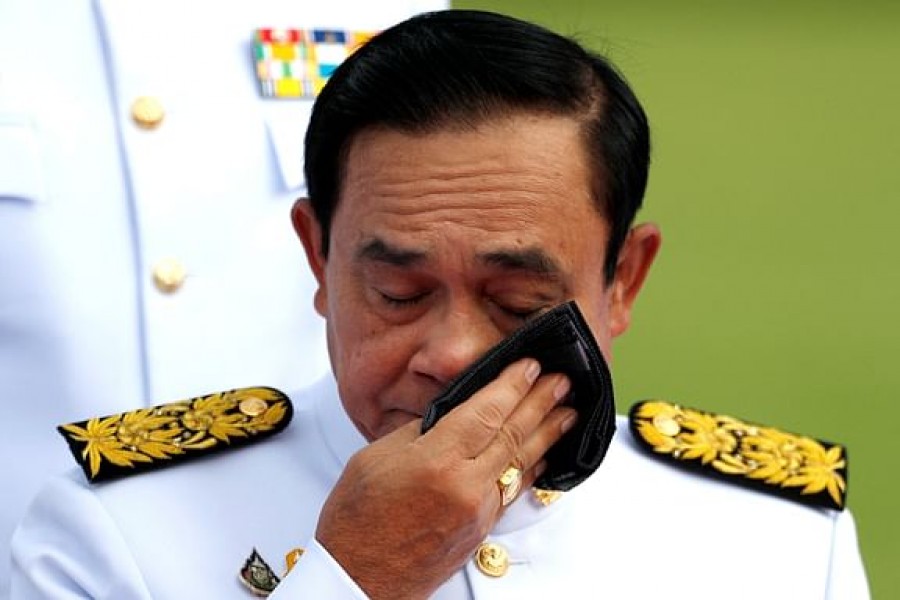Thailand's Constitutional Court suspended Prime Minister Prayuth Chan-ocha from official duties on Wednesday, after it decided to hear a petition to review his legally mandated eight-year term limit.
The court's surprise move came in response to a petition by opposition parties that Prayuth, the army chief when he first seized power in a 2014 coup, should have his time as premier heading the former military junta count towards the term limit.
Deputy Prime Minister Prawit Wongsuwan is expected to take over as interim leader, Deputy Prime Minister Wissanu Krea-ngam told reporters on Monday.
Though Prayuth could still be restored to his position when the court makes its ruling, the move to suspend him threw Thai politics into disarray, with a general election due by May next year, reports Reuters.
Prayuth will have 15 days to respond, the court told media in a statement, adding that a panel of judges ruled five to four in favour of his suspension, starting from Wednesday.
"The court has considered the petition and related documents and sees that the facts from the petition are cause for questioning as demanded," it said.
It was not clear when the court would deliver a final ruling on the petition, brought by the main opposition party arguing that Prayuth's time spent as head of a military junta should count towards his constitutionally stipulated eight-year term.
Prayuth, who led a 2014 coup to overthrow an elected government, became a civilian prime minister in 2019 after an election held under a military-drafted constitution.
In its request for the court's review, the main opposition party has argued that Prayuth should leave office this month because his time as junta chief should count towards his term.
Nearly two-thirds of Thais also want Prayuth out of office by this month, a recent poll showed.
But some supporters argue his term started in 2017, when a new constitution took effect, or after the 2019 election, meaning that he should be allowed to stay in power until 2025 or 2027, if elected.
The controversy is the latest in a country that has suffered intermittent political turmoil for nearly two decades, including two coups and violent protests.
That has stemmed broadly from opposition to the military's involvement in politics and demands for greater representation by increasingly politically aware sections of society.


